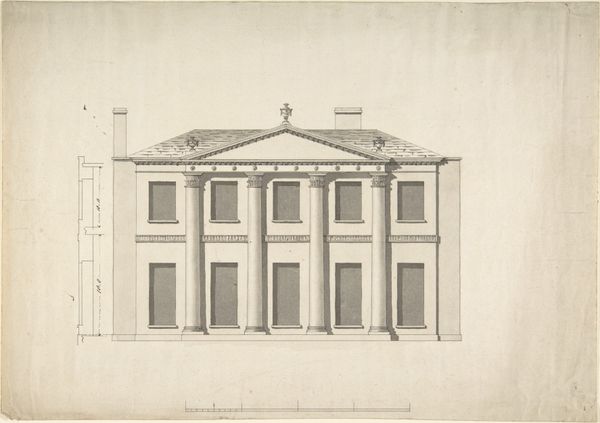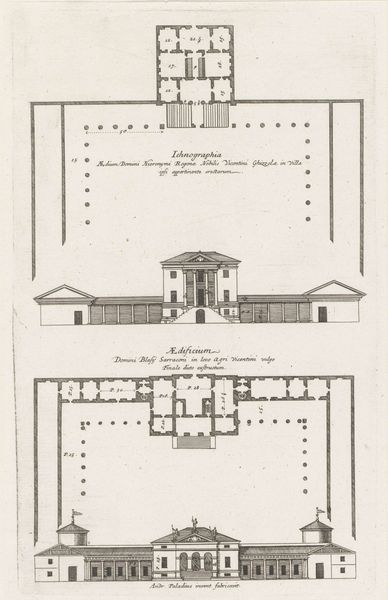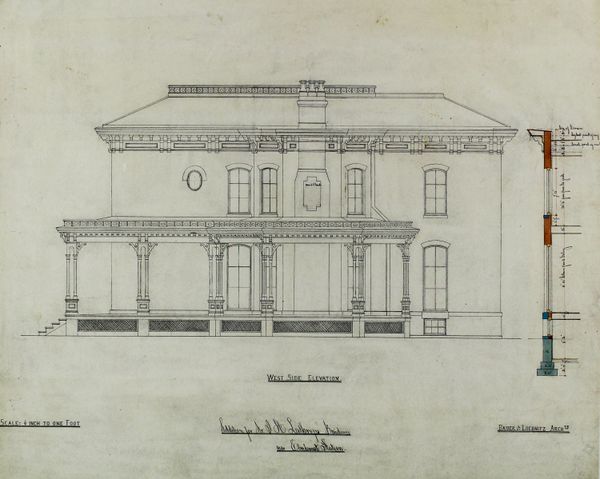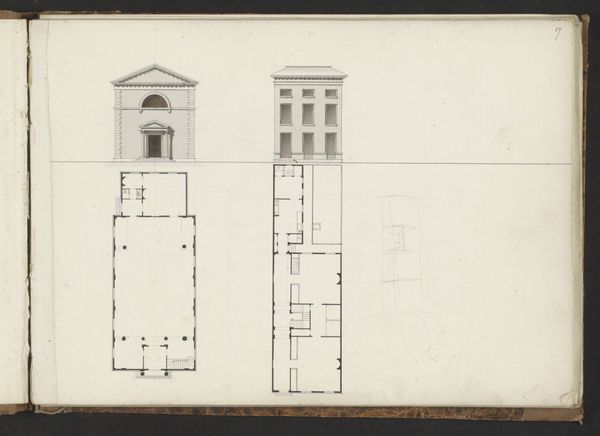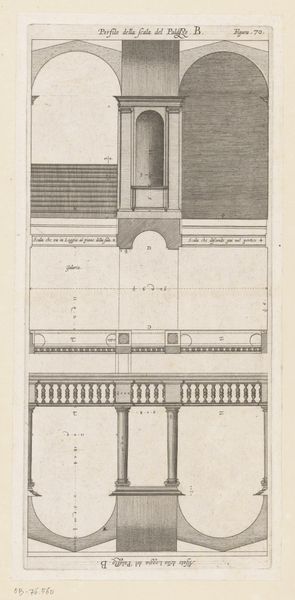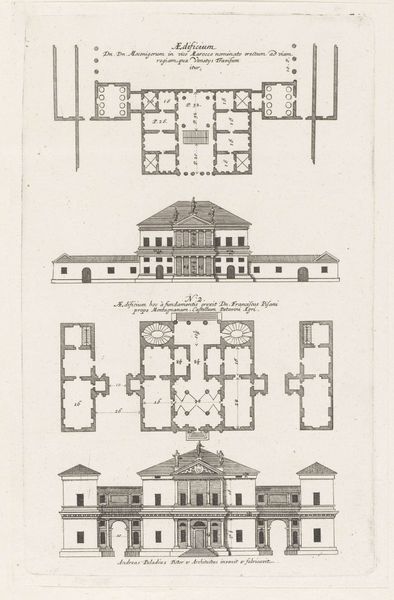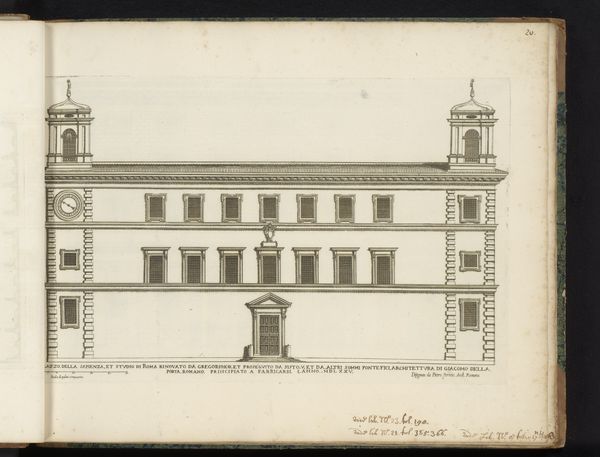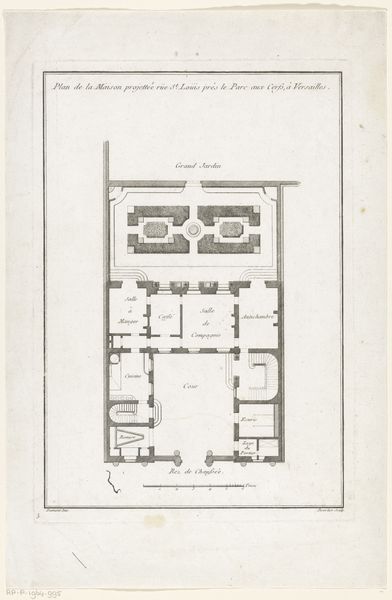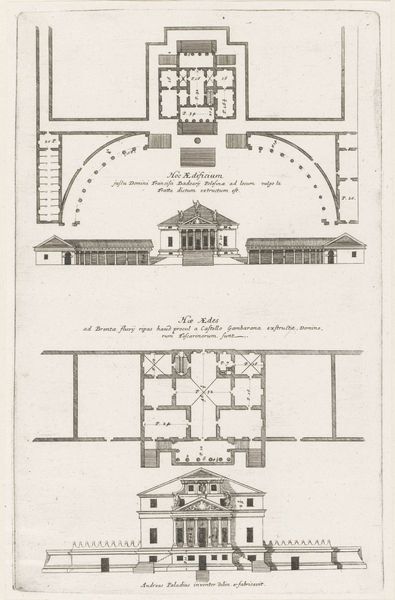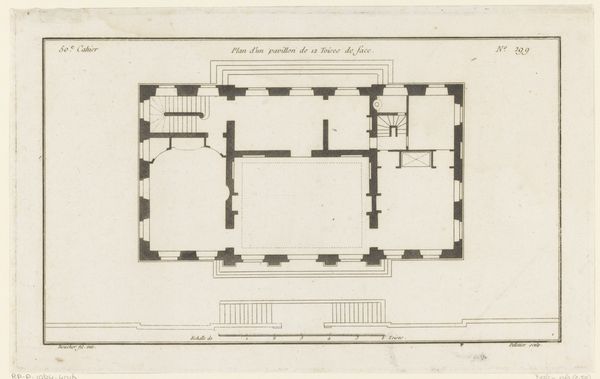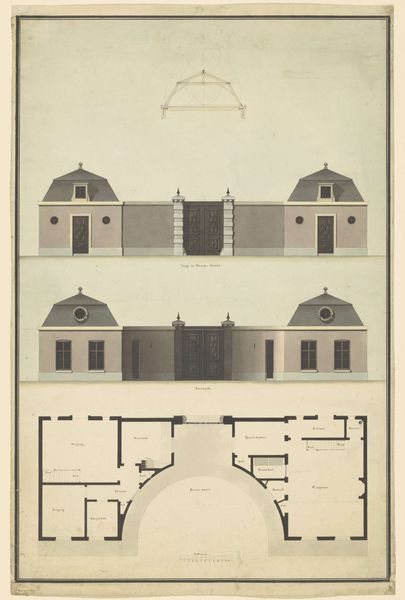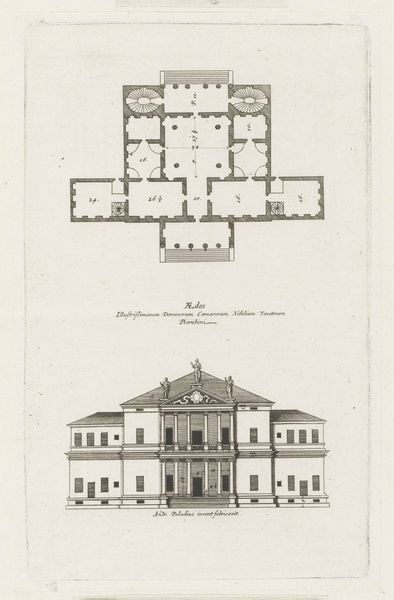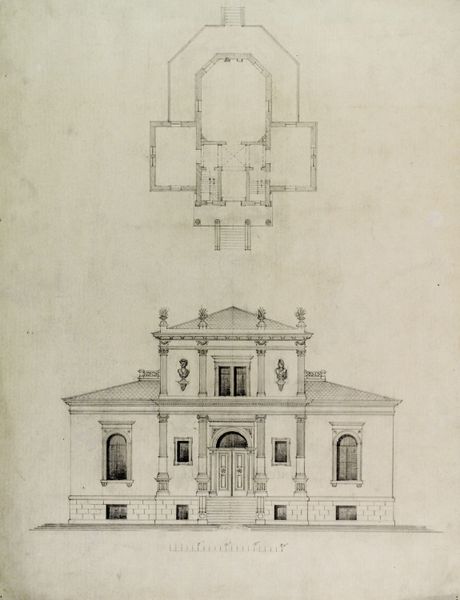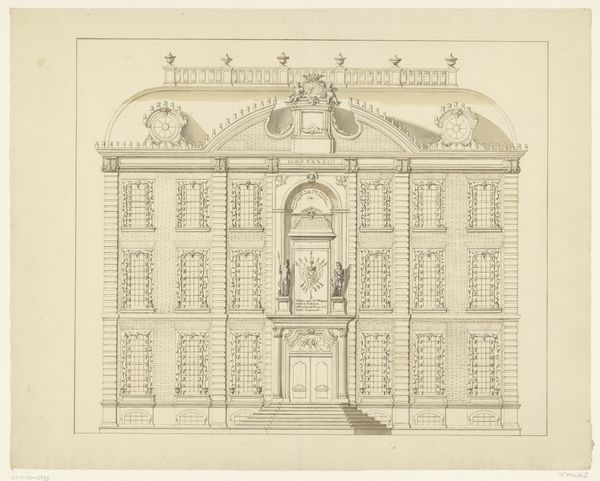
drawing, print, paper, ink, engraving, architecture
#
drawing
#
dutch-golden-age
# print
#
paper
#
ink
#
engraving
#
architecture
Dimensions: height 298 mm, width 192 mm
Copyright: Rijks Museum: Open Domain
Editor: Here we have Jan Matthysz.’s "Elevation and plan of the kitchen at the Huis ten Bosch Palace", made in 1655, using ink and engraving on paper. It depicts both a frontal view of the building and a floor plan. I'm curious about what life was like in those times... What strikes you about this piece? Curator: It's a fascinating document of the Dutch Golden Age. Beyond just representing architecture, it points us to the systems of labor embedded in its creation and intended use. Think about the paper itself, the ink, the very act of engraving—all reliant on specific tools, materials, and skills of the artisans, wouldn't you agree? Editor: Definitely, I hadn’t thought about the making of it beyond its design. So you see the materials themselves as evidence of... what exactly? Curator: Consider the social context. This kitchen served a palace. Who worked there? What were their conditions? This plan isn't just about aesthetic design. It shows us how space, and thus labor, was organized. What ingredients would have been prepped in this kitchen, and who sourced them? Following this line of questioning reveals a hierarchy of production. Editor: That's a completely different perspective than I usually consider. I typically look at art through the lens of the artist's intention. Curator: But the "artist" here – a draughtsman, an engraver – were responding to specific demands, perhaps documenting pre-existing plans or visualizing the designs of someone else entirely. These aren’t romanticized "artists" expressing inner turmoil. They’re workers in a system. Editor: So by looking at the materials and the context of the drawing, we are uncovering evidence of class structure and modes of production. Thanks, I’ll keep that in mind from now on.
Comments
No comments
Be the first to comment and join the conversation on the ultimate creative platform.
